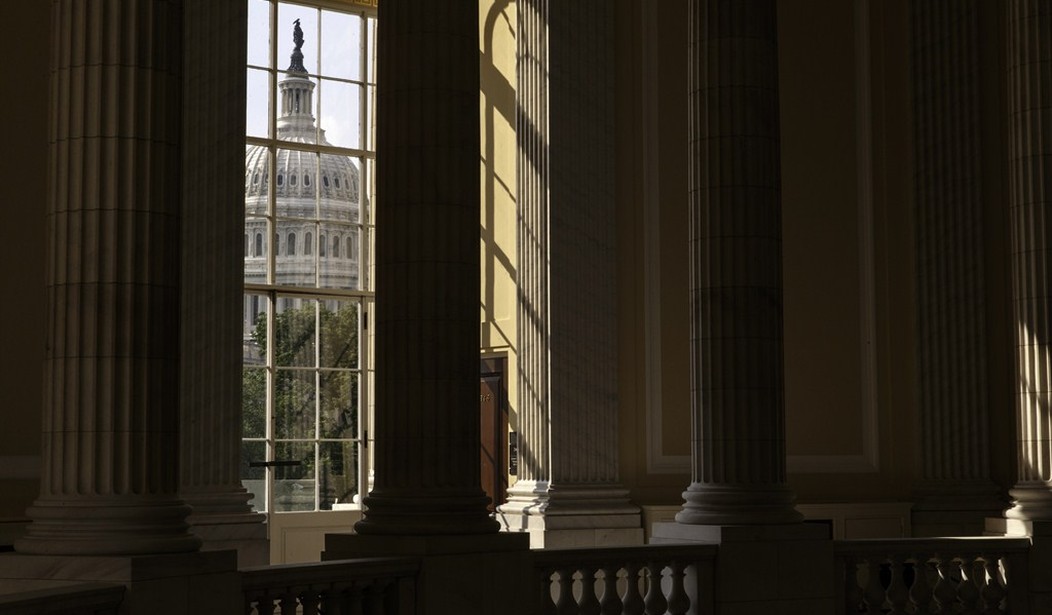We have to give it to them. Members of Congress have a very sharp sense of irony.
Bills that have been passed over the past week reveal a disturbing reality about the priorities of those tasked with making our nation’s laws.
The House on Friday passed a bill that would ban video sharing app TikTok if its parent company, which is aligned with the Chinese government, does not agree to sell the app to a U.S.-based company. The legislation is intended to prevent the Chinese Communist Party (CCP) from spying on American TikTok users and accessing their data.
The proposed legislation, which has its share of proponents and detractors, is aimed at preventing the Chinese Communist Party (CCP) from covertly accessing the data of Americans using the app. If it becomes law, it could become a pivotal moment related to government involvement in digital communication.
The ban was tied to the vote on a $95 billion foreign aid package for Ukraine, Israel and Taiwan, and has gotten comparatively little attention.
The TikTok bill passed by a vote of 360 to 58...
Roughly 150 million Americans are on TikTok and there have been growing fears among lawmakers about what influence its Chinese Communist owners have on the company.
Rep. Ritchie Torres (D-NY) celebrated the passage of the bill, saying that it “represents a bipartisan breakthrough against the CCP’s most powerful tool of information warfare against the United States” and declared that lawmakers would not “stand by idly while the CCP freely weaponizes TikTok to corrupt the minds of young Americans, radicalize Americans against their own country, and amplify antisemitism on a scale and at a pace not seen in human history.”
The desire to protect American citizens from being spied on by a foreign government is laudable. However, despite some lawmakers’ supposed concerns about this issue, many also voted in favor of another piece of controversial legislation earlier this month.
Congress recently voted to reauthorize the Foreign Intelligence Surveillance Act (FISA), legislation that allows federal agencies to spy on foreigners. The law has been the subject of criticism because the FBI and other agencies have used Section 702 of the bill to spy on American citizens without first obtaining a warrant.
Rep. Andy Biggs (R-AZ) had proposed an amendment to the reauthorization bill that would have compelled agencies to get a warrant before conducting surveillance on American citizens, but it was voted down.
On Friday, the House passed a revised surveillance bill, the Reforming Intelligence and Surveillance Act, after advancing it earlier in the day by voting 213-208 to open up debate. The bill passed with 273 yays and 147 nays, reauthorizing the Foreign Intelligence Surveillance Act (FISA), and now moves to the Senate with an impending renewal deadline of April 19.
The Senate passed the reauthorization act on Saturday, just before FISA was set to expire, without requiring a warrant for surveillance on American citizens.
Roughly 40 minutes after it lapsed, the Senate voted to pass a renewal of Section 702 of the Foreign Intelligence Surveillance Act (FISA), which serves as a critical tool used by the government to gather intelligence on foreign subjects using the compelled assistance of electronic communication service providers.
The upper chamber voted 60-34 to pass the re-authorization. The provision lapsed for less than an hour at midnight on Friday, and if the renewal hadn't passed soon after, the expiration would have meant companies would not be forced to comply with the government's requests for surveillance aid under the bill.
The new FISA bill has come under scrutiny from privacy hawks who argue that it violates the Fourth Amendment, which protects Americans from unreasonable searches and seizures. They contend that allowing the government to spy on Americans without probable cause and a warrant is a direct violation of natural rights.
What the passage of these two pieces of legislation shows is that Congress clearly does not care about Americans being spied on, as long as it is the United States federal government doing the spying. Despite concerns raised by citizens and high-profile individuals, there are enough lawmakers who believe agencies should not have to demonstrate that they have valid reasons for conducting surveillance on Americans.
This shows that our government is not trying to protect our rights from the CCP, they are simply eliminating competition. The federal government wants to be the only entity that spies on the public while gathering their information.
Unfortunately, there are too many elected officials who care nothing about restricting the state from infringing on our natural God-given rights. Until this issue is addressed, nothing will change.
Read more:
OPINION: Federal TikTok Ban Is Pointless—and an Assault on The First Amendment
To TikTok, or Not to TikTok? For Conservatives, the Answer Is Clear












